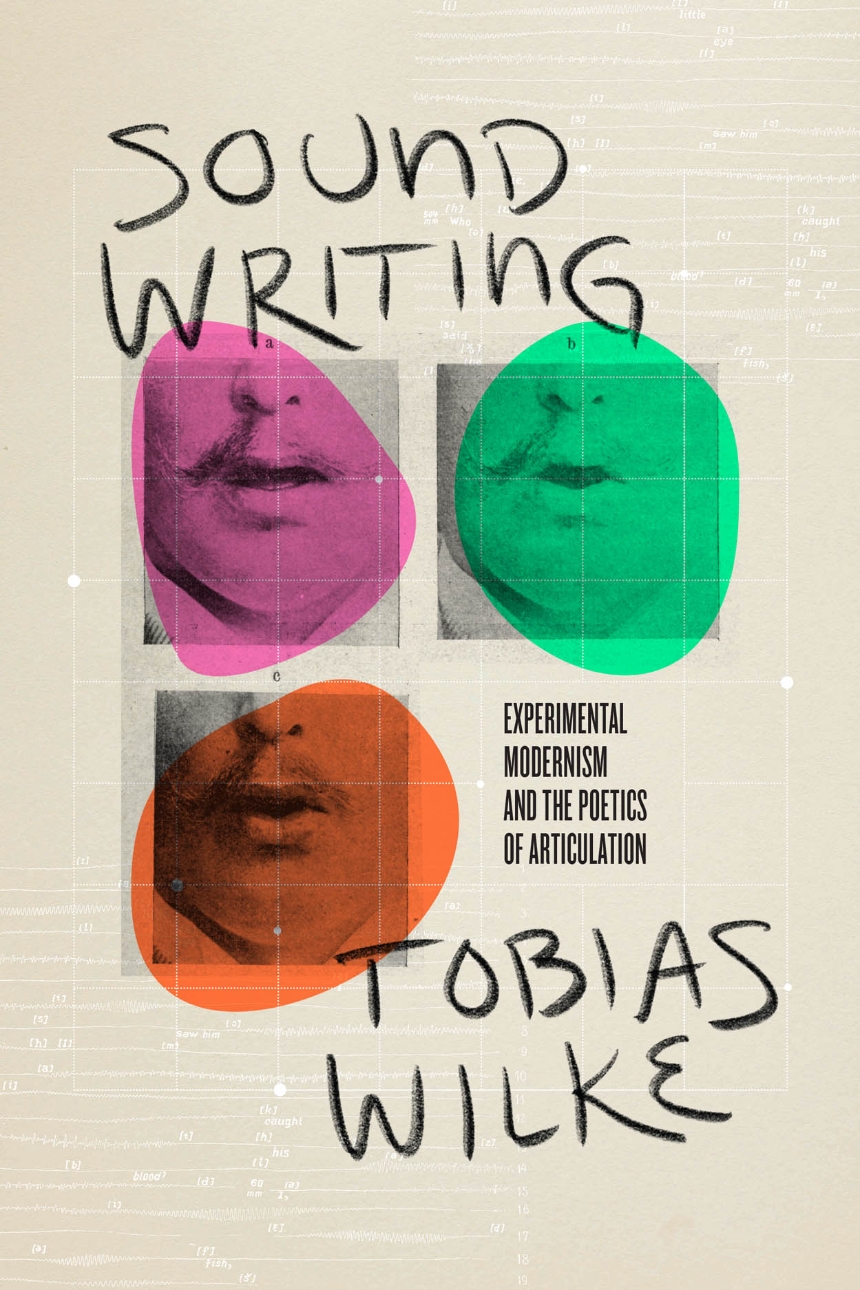Sound Writing
Experimental Modernism and the Poetics of Articulation
9780226817774
9780226817750
9780226817767
Sound Writing
Experimental Modernism and the Poetics of Articulation
Considers the avant-garde rethinking of poetic language in terms of physical speech production.
Avant-garde writers and artists of the twentieth century radically reconceived poetic language, appropriating scientific theories and techniques as they turned their attention to the physical process of spoken language. This modernist “sound writing” focused on the bodily production of speech, which it rendered in poetic, legible, graphic form.
Modernist sound writing aims to capture the acoustic phenomenon of vocal articulation by graphic means. Tobias Wilke considers sound writing from its inception in nineteenth-century disciplines like physiology and experimental phonetics, following its role in the aesthetic practices of the interwar avant-garde and through to its reemergence in the postwar period. These projects work with the possibility of crossing over from the audible to the visible, from speech to notation, from body to trace. Employing various techniques and concepts, this search for new possibilities played a central role in the transformation of poetry into a site of radical linguistic experimentation. Considering the works of writers and artists—including Raoul Hausmann, Kurt Schwitters, Viktor Shklovsky, Hugo Ball, Charles Olson, and Marshall McLuhan—Wilke offers a fresh look at the history of the twentieth-century avant-garde.
Avant-garde writers and artists of the twentieth century radically reconceived poetic language, appropriating scientific theories and techniques as they turned their attention to the physical process of spoken language. This modernist “sound writing” focused on the bodily production of speech, which it rendered in poetic, legible, graphic form.
Modernist sound writing aims to capture the acoustic phenomenon of vocal articulation by graphic means. Tobias Wilke considers sound writing from its inception in nineteenth-century disciplines like physiology and experimental phonetics, following its role in the aesthetic practices of the interwar avant-garde and through to its reemergence in the postwar period. These projects work with the possibility of crossing over from the audible to the visible, from speech to notation, from body to trace. Employing various techniques and concepts, this search for new possibilities played a central role in the transformation of poetry into a site of radical linguistic experimentation. Considering the works of writers and artists—including Raoul Hausmann, Kurt Schwitters, Viktor Shklovsky, Hugo Ball, Charles Olson, and Marshall McLuhan—Wilke offers a fresh look at the history of the twentieth-century avant-garde.
272 pages | 5 color plates, 39 halftones | 6 x 9 | © 2022
Art: European Art
Literature and Literary Criticism: General Criticism and Critical Theory
Reviews
Table of Contents
Introduction
1. Voice Figures: Visible Sound and the Poetics of Articulation (1787–1965)
Oaoa, or The Eidophonetic Poem
Vibrating Disks and Primary Letters
Photographing Speech
2. Toward a Science of Verse: Speech Movements, Graphic Inscription, and the Study of Poetry (1871–1915)
Writing of the Mouth
“The Art of Reading Curves”
Symbolic Sounds
3. Mama—Papa—Dada: Poetic Expression at the Threshold of Language (1916–1947)
Remaking Verse in the Vocal Tract
From Babble to Gesture to Word (and Back)
E dada: Reading Graphic Articulations
Birdsong in Translation
4. Verbi-Voco-Visual Explorations: Experimental Modernism in a Technical Age (1947–1967)
“Visible Speech” between Body and Bits
Rearticulating Poetic Experimentation
Beyond Lineality, or The Expansion of Writing
Acknowledgments
Bibliography
Index
1. Voice Figures: Visible Sound and the Poetics of Articulation (1787–1965)
Oaoa, or The Eidophonetic Poem
Vibrating Disks and Primary Letters
Photographing Speech
2. Toward a Science of Verse: Speech Movements, Graphic Inscription, and the Study of Poetry (1871–1915)
Writing of the Mouth
“The Art of Reading Curves”
Symbolic Sounds
3. Mama—Papa—Dada: Poetic Expression at the Threshold of Language (1916–1947)
Remaking Verse in the Vocal Tract
From Babble to Gesture to Word (and Back)
E dada: Reading Graphic Articulations
Birdsong in Translation
4. Verbi-Voco-Visual Explorations: Experimental Modernism in a Technical Age (1947–1967)
“Visible Speech” between Body and Bits
Rearticulating Poetic Experimentation
Beyond Lineality, or The Expansion of Writing
Acknowledgments
Bibliography
Index
